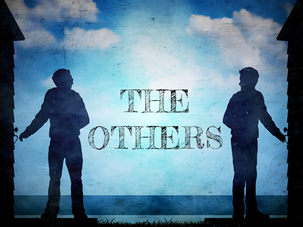
How do you feel about the “others?”
We all have others. They’re the people who seem different from us. They may include people who don’t look like you, speak your language, share your background, think like you, vote like you, or worship like you. They can be people who have more or less education, money, health, beauty, fame, or influence. They can live in a different country, a different state, a different neighborhood, a different street, or just a different kind of house.
Jesus once asked, “And if you greet only your brothers, what more are you doing than others?” (Matthew 5:47). We tend to gravitate towards those most like us while ignoring the others. And in so doing, we are really no different from the others.
Jesus once accepted an invitation to dine at the home of a Pharisee named Simon. Even though Jesus was a fellow Jew committed to God and Scripture, Pharisees viewed him as an “other.” The Pharisees had lots of “others.” That’s the problem with otherness. We can always find a new way to classify and divide fellow human beings in such a way that we demonize or marginalize them as something “other.”
Simon’s dinner party ended up being crashed by another kind of “other.” In Simon’s eyes, she was nothing more than a sinner, the worst kind of other. He seethed as this woman of ill-repute showered the Lord with her tears and oil. All Simon could think was “How could a man – especially a supposed prophet – having anything to do with a woman like her?”
Jesus could have viewed both Simon and the woman as others. Instead he graciously accepted the Pharisee’s invitation to dinner, and he graciously accepted the kindness extended by the woman. They both were sinners in need of grace. Only one recognized and received that need.
Jesus taught us both in his words and actions that we are to love others as we love ourselves. The willingness to love others is to be the ultimate distinguishing mark of Christians. Too often, though, we turn ourselves into an isolated tribe while leaving the others to fend for themselves. Even worse, we may contribute to their otherness by ignoring or ostracizing them.
There will always be others. The test for us is how do we view them, speak of them, and above all, serve them. Does it mean we always agree with them? Certainly not. Does it mean that they always respond to us with gratitude? They ended up killing Jesus. And in his death, Jesus continued to love and serve others, including you and me.
The world will always look down upon others. If you respond in kind, you become just like the world. You have been called out of this world to love others in a way the world has never seen. When you do, others will be blessed. And so will you.
We all have others. They’re the people who seem different from us. They may include people who don’t look like you, speak your language, share your background, think like you, vote like you, or worship like you. They can be people who have more or less education, money, health, beauty, fame, or influence. They can live in a different country, a different state, a different neighborhood, a different street, or just a different kind of house.
Jesus once asked, “And if you greet only your brothers, what more are you doing than others?” (Matthew 5:47). We tend to gravitate towards those most like us while ignoring the others. And in so doing, we are really no different from the others.
Jesus once accepted an invitation to dine at the home of a Pharisee named Simon. Even though Jesus was a fellow Jew committed to God and Scripture, Pharisees viewed him as an “other.” The Pharisees had lots of “others.” That’s the problem with otherness. We can always find a new way to classify and divide fellow human beings in such a way that we demonize or marginalize them as something “other.”
Simon’s dinner party ended up being crashed by another kind of “other.” In Simon’s eyes, she was nothing more than a sinner, the worst kind of other. He seethed as this woman of ill-repute showered the Lord with her tears and oil. All Simon could think was “How could a man – especially a supposed prophet – having anything to do with a woman like her?”
Jesus could have viewed both Simon and the woman as others. Instead he graciously accepted the Pharisee’s invitation to dinner, and he graciously accepted the kindness extended by the woman. They both were sinners in need of grace. Only one recognized and received that need.
Jesus taught us both in his words and actions that we are to love others as we love ourselves. The willingness to love others is to be the ultimate distinguishing mark of Christians. Too often, though, we turn ourselves into an isolated tribe while leaving the others to fend for themselves. Even worse, we may contribute to their otherness by ignoring or ostracizing them.
There will always be others. The test for us is how do we view them, speak of them, and above all, serve them. Does it mean we always agree with them? Certainly not. Does it mean that they always respond to us with gratitude? They ended up killing Jesus. And in his death, Jesus continued to love and serve others, including you and me.
The world will always look down upon others. If you respond in kind, you become just like the world. You have been called out of this world to love others in a way the world has never seen. When you do, others will be blessed. And so will you.

 RSS Feed
RSS Feed